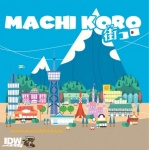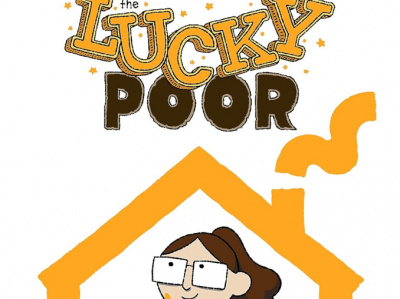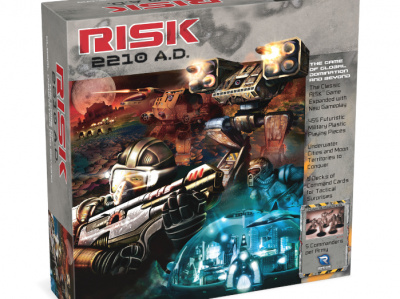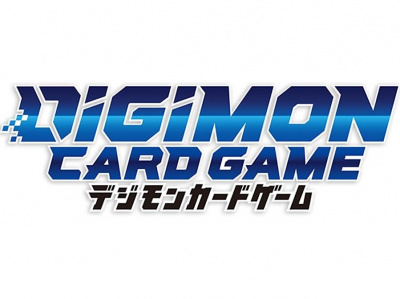 Machi Koro
Machi KoroPublisher: IDW Games & Pandasaurus (Published originally in Japan by Grounding Inc.)
Designer: Masao Suganuma
Release Date: May 2014
MSRP: $29.95
Number of Players: 2 to 4
Playing Time: About 30 minutes
Age Rating: 7 and up
Product #: 827-7140-0665-0 (UPC)
ICv2 Rating: 3 Stars out of 5
Over the past few years, Japanese card games have become increasingly popular in the US, and it's easy to see why. Like haiku poetry, these games tend to be compact, distilled down to their barest essence with all extraneous stuff removed, yet full of deeply emergent meaning to those who choose to explore them. Basically, the exact opposite of the big-boxed "fiddly" games that require a dining room table fit for royalty to play on.
Machi Koro is yet another fine example of this trend, offering a surprisingly addictive little luck-fest that plays quick and easy, with lots of fun for all involved.
Summary: Each player is the new "mayor" of a tiny village that contains nothing but a wheat field and a bakery (represented by cards). On your turn, you roll 1 or 2 dice, and any card that matches the number rolled has a chance to produce coins (much like hexes in The Settlers of Catan produce resources). These coins can then be used to purchase additional cards from a common tableau, which in turn gives you more opportunities to match numbers and produce coins.
That is the entire game, in essence. There are some special rules about how certain buildings pay out (red cards, for example, allow you to steal coins from another player, but only on their turn, while green cards produce only on your turn, etc.), but the mechanics themselves really are that simple.
Originality: Before you say "ho-hum, another city-building game," know that Machi Koro's creativity does not lie in fancy, fiddly add-ons and revolutionary new mechanics. Rather the originality here is in the elimination of all those unnecessary things. Instead of requiring a complex mix of specific resources to build a new cheese factory, there is only one currency. Instead of balancing a host of unrelated mechanical tasks, there is only producing money and building stuff with it. You could almost say that Machi Koro's originality lies in its lack of originality: a distillation of the city building game down to its barest and most essential parts.
Presentation: The artwork is very stylistic, and this may be an obstacle for some people. It almost looks like something out of a casual on-line game. But, the artwork is consistent throughout the entire game and packaging, it is produced with skill and quality, and does not in any way detract from the important information printed on the cards.
My review copy came to me in a Japanese language box, so I can't say much about the material presentation of the IDW/Pegasaurus version, such as how well the box text communicates the ideas of the game, and so forth. But I have seen a mockup of the box cover and it does mesh perfectly with the graphic and artistic style of the game while offering bright cheerful colors and an easy-to-read title.
Quality: Again, my analysis of the quality of the game components must be presented with a caveat: Since I only had a promotional preview copy, I cannot speak towards the quality of the box cardboard, or the coating on the cards, or any of the other physical components of the game. I can say that the card graphics are well-designed and easy to read. I have been told that the game will have high quality coins for the currency and that the box will be enlarged and of solid, sturdy material.
The rules are concise and nicely supported with illustrations and examples, though they could have been more clear in some places. Fortunately, the game mechanics themselves are simple and intuitive enough that problems with the rulebook should not be an obstacle for any player. The English text on the cards is clear and easy to understand, without any of the bizarre language issues that sometimes occur with Japanese game translations.
Marketability: Machi Koro is a good filler game, which is a category that has been very popular of late. It is easy to learn and plays in half an hour, making it an excellent choice for an end-of-evening or waiting-for-players-to-show-up activity. However, I think the four player limit does hamper it slightly as a filler game, as it competes with a host of nice light games that can accommodate much larger groups. Also, the almost $30 price tag feels a bit steep to me, considering that all one will find in the box is a pair of dice, 108 cards, and 60 plastic tokens.
Overall: Overlooking its few handicaps, Machi Koro is a delightful little game. It's fun, it's fast, it's easy to learn, and it truly is suitable for all ages, families, and casual players. But, it also offers surprisingly deep layers of strategy and tactics that will appeal to more experienced gamers. The "luck of the dice" can be a huge factor in the game, though players can take steps to mitigate that to some degree. In a heavier game with a longer playing time, this could be a serious obstacle, but in a light game like Machi Koro, any wild swing of luck is more likely to create a desire to play it again.
Machi Koro is a fun little filler game that is perfect for small groups that want the fun of an empire-building-style city-themed game, but don't want to devote massive amounts of time to it. I'd happily play it again, and can easily give this game 3 out of 5.
--William Niebling







